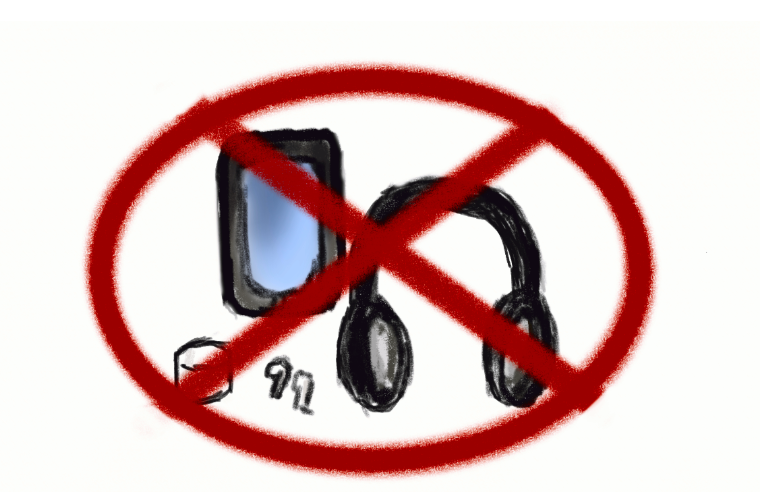Worldwide, the past two Septembers have been the hottest on record. According to Europe’s top climate agency, they have been over half a degree warmer. Half a degree of global warming is enough to kill coral reefs worldwide and make heat waves last twice as long. Even though we know all of the impacts of just a little global warming, we seem unprepared to solve the climate catastrophe. It is our job as the public to urge lawmakers to implement more climate policy and implement more climate-conscious practices in our own lives. Though climate change may not seem urgent, this is everyone’s Earth, and we need to protect it.
As a member of the public, it can be intimidating to reach out to local lawmakers. However, more than ever, it is extraordinarily important to get the attention of your lawmakers. The public has urged lawmakers to implement climate policy in the past, and we can do it again. According to the Washington Post, “The concentration of carbon dioxide in Earth’s atmosphere last year exceeded 420 parts per million — a level not seen since…more than 3 million years ago.” This demonstrates that global warming has a huge effect on the planet, and we need to be urging our lawmakers to fix it.
Individuals also need to be implementing climate-friendly practices in their own lives. In accordance with the climate law that was put in place, the public successfully stopped using substances that destroy the ozone layer, helping to restore our atmosphere. Along with what the public has done in the past, we can take more steps to continue to consider the climate by changing everyday practices. Some of these practices include cutting down on food waste, and implementing the commonly heard phrase: “reduce, reuse, recycle.” While it is an international project to reverse climate change, by starting at the personal level individuals can begin making a difference now.
Though the effects of climate change are almost undeniable, some can have a hard time believing that the Earth is warming rapidly. After interviewing 30+ people who believe that the effects of climate change are overstated, the Pew Research Center reported that a major concern is the removal of freedom to choose what products we own. This can be a valid concern, as some climate policy is aimed at limiting the use of energy inefficient products. However, these policies are not saying that you are unable to use certain products, rather they urge the public to use more environmentally friendly products.
By becoming more conscious of our effect on the environment, climate change is on its way to being under control. Though it may not seem like an issue we all need to care about, climate change will soon be affecting all of us greatly, and it is important that we act now. This makes it a global issue to solve climate change, and it is important to act while we still can to fix the climate catastrophe that we have created today.
Sources
“Basic Ozone Layer Science.” United States Environmental Protection Agency, 17 Sept. 2024, www.epa.gov/ozone-layer-protection/basic-ozone-layer-science. Accessed 4 Nov. 2024.
“The Climate Crisis: Working Together for Future Generations.” U.S. Departement of State, www.state.gov/policy-issues/climate-crisis/#:~:text=Domestically%2C%20progress%20to%20date%20includes,zero%20emissions%20economy%20by%202050. Accessed 4 Nov. 2024.
Gaffney, Austyn. “Climate Change Is Making Disasters Deadlier. Here’s How Much.” The New York Times, 31 Oct. 2024, www.nytimes.com/2024/10/31/climate/climate-disasters-cop29-election.html?searchResultPosition=9. Accessed 3 Nov. 2024.
Kaplan, Sarah. “Planet-warming pollution is growing at the fastest rate in history, scientists say.” The Washington Post, 28 Oct. 2024, www.washingtonpost.com/climate-environment/2024/10/28/wmo-report-record-greenhouse-gases/. Accessed 3 Nov. 2024.
Kubota, Taylor. “Eight simple but meaningful things you can do for the environment.” Stanford Report, 22 Jan. 2024, news.stanford.edu/stories/2024/01/eight-simple-meaningful-eco-friendly-actions-can-incorporate-life. Accessed 4 Nov. 2024.
Lashof, Dan. “Tracking Progress: Climate Action Under the Biden Administration.” World Resources Institute, 30 July 2024, www.wri.org/insights/biden-administration-tracking-climate-action-progress. Accessed 4 Nov. 2024.
Pasquini, Giancarlo, et al. “Why Some Americans Do Not See Urgency on Climate Change.” Pew Research Center, 9 Aug. 2023, www.pewresearch.org/science/2023/08/09/why-some-americans-do-not-see-urgency-on-climate-change/. Accessed 3 Nov. 2024.
“Second warmest September globally and in Europe.” Copernicus, 9 Oct. 2024, climate.copernicus.eu/second-warmest-september-globally-and-europe. Accessed 4 Nov. 2024.












